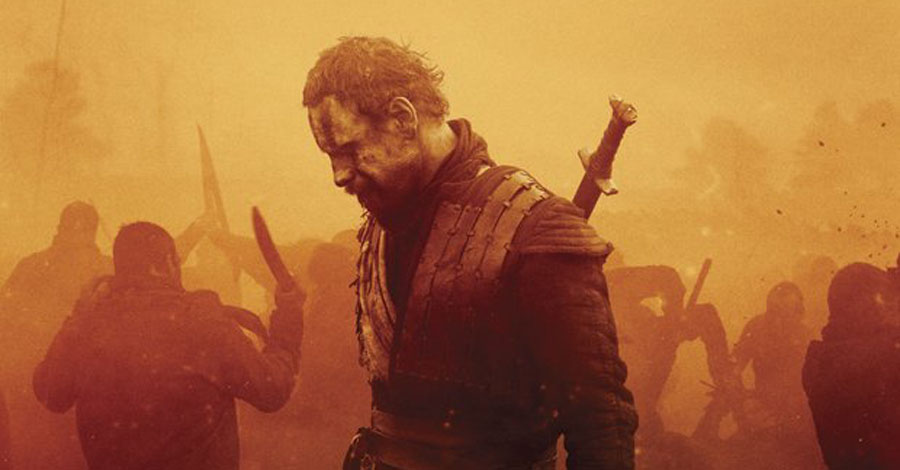 (3 / 5)
(3 / 5)
What do you think is the greatest Shakespeare adaptation ever committed to celluloid?
Perhaps you favor the expressionistic majesty and revelry of Welles’ Chimes at Midnight, or maybe the jazzy, black-and-white sophistication of Joss Whedon’s contemporary Much Ado. For all the promise of its conception, Justin Kurzel’s Macbeth does not stand among their exalted ranks.
A resolutely period piece staged among the misty bluffs and pale yellow gorse of the Scottish Highlands, the film begins with blood as two warring, jerkin-clad clans tear into each other with sword and teeth. The action cuts back and forth between epic slow-mo and chaotic real-time – the thunder of footfall as the factions clash is like the diving rain.
This juxtaposition of the mythic and the actual, thanks to Chris Dickens’ sturdy editing, immediately suggests a thesis: that these larger-than-life events – the fate of nations, rise and fall of kings – are lit by the forgotten funeral pyres of men, women, and children.
Macbeth (Michael Fassbender), meanwhile, stands still amid the carnage that throngs around him, staring out at the Weird Sisters, the Witches that will lead him on to regicide and tyranny. Unlike in, say, the Rupert Goold adaptation, which starred Patrick Stewart and in which they desired vengeance – Fassbender is the last of the Professor X/Magneto duos to star in The Scottish Play – their motivation here is utterly unfathomable, as are the origins of the weird tribal scars that mark their faces.
The dead children here belong to Macbeth and his wife (Marion Cotillard), whose ambition it is suggested is born of some grief-stricken instinct.
Strange then that the film is otherwise so muted: Fassbender’s Macbeth, rather than some theatrical monster, is a weak, easily manipulated warrior who, once the crown is upon his head, quickly lapses into paranoia and distraction. Where he is feverish and increasingly impulsive, all sickly grins, Cotillard’s Lady Macbeth is pale and icy – her sea-green eyes flash with annoyance or swell with tears as she dwells upon her loss.
From Macbeth’s own weapon-adorned shack to the opulent seaside castle he comes to inhabit, and even upon the remote and craggy bluffs, the film’s reserve provides the feeling of a chamber piece.
Dun and desolate, Macbeth’s supporting cast – David Thewslis’ meek yet authoritative Duncan, Paddy Considine’s darkly watchful Banquo, Sean Harris’ coiled Macduff – are equally able but uninspired. Jed Kurzel’s warlike score provides as certain charge to proceedings and Adam Arkapaw’s cinematography brings a gritty clarity to brackish sprays of blood and hellish images of forests aflame.
The film loses the poetry amidst the dour pseudo-realism of Medieval Scotland. The depth of meaning in Shakespeare’s text, reworked by Todd Louiso, Jacob Koskoff, and Michael Lesslie, quietly slips away.
A somewhat flat study of a brutal world where suffering perpetuates itself down through the generations, Kurzel’s Macbeth may be too bleak a reading of an ultimately hopeful tragedy – a not unforeseeable outcome from the director of Snowtown.
Where Welles, Polanski, or Kurosawa offered insight, this is merely texture; a Macbeth that lacks not only significance but also the sound and fury that might make the most of its quick-burning run-time.
